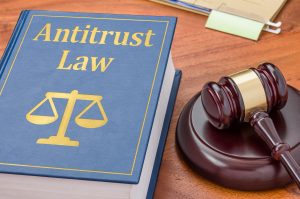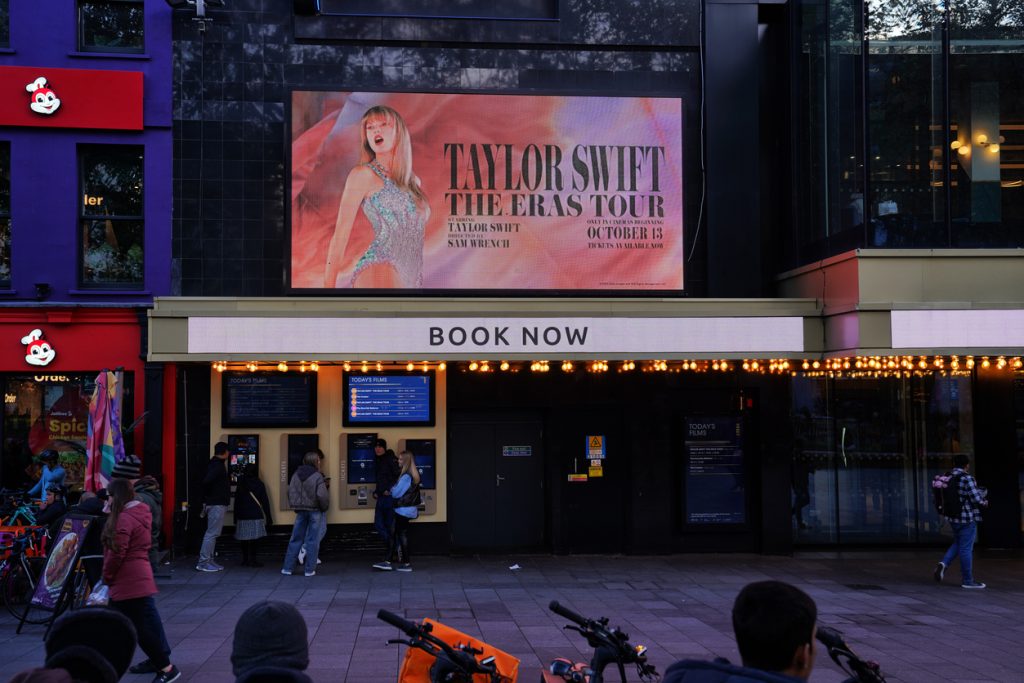A surge in demand for a specific concert tour overwhelmed the online ticketing website, shutting it down. It happens. No big deal. Right?
There's a little more to the story.
What happened?
Ticketmaster handled ticket sales for 47 of 52 dates for Taylor Swift's first tour since 2018. The "Eras" tour required verified fans to register on the Ticketmaster site. Registered fans would receive a code allowing them to purchase the ticket.
So far, so good.
However, the volume of requests for presale tickets was unprecedented. It led to glitches and long wait times. Some waited up to eight hours but did not get tickets. The company tried to justify the glitches to bot attacks from scalpers wanting to buy tickets to resell. It subsequently cancelled the general sale, saying it was due to a lack of inventory. Frustrated Swiftie fans were not buying it. Millions were unable to buy a ticket, including Capital One card holders.
Despite the attention it garnered, the underlying event sounds reasonable on the face of it. It is not the first time a site has gotten overwhelmed by massive demand. However, the basis for the criticism levelled at Ticketmaster was its monopoly on the online ticketing industry. Critics say it charges exorbitant fees and hoards tickets for sale on their secondary market site by resellers. Since Ticketmaster has exclusive rights to concert venues, it forces artists and fans to use their site.
The uproar was so massive among Swifties that it shone a light on something developing over three decades.
A Long-Standing Issue
Ticketmaster has been exciting the ire of artists and lawmakers for a long time. In 1994, Pearl Jam band members Jeff Ament and Stone Gossard appeared before Congress to provide testimony. They had filed an antitrust complaint against Ticketmaster for…$2.20.
The complaint resulted from a disagreement between Ticketmaster and Pearl Jam over the service fee charge. The band wanted it capped at $1.80, and Ticketmaster refused. Remember that overcharging is one of the allegations brought against Ticketmaster in 2023. At the time, ticketing companies typically charged a minimum of $4 for these fees.
The Justice Department had already had an eye on Ticketmaster, which held about 90 per cent of the ticket market then. When it heard about the dispute, it advised the band founders to file a complaint. However, nothing came out of it at the time despite the hearing.
The DOJ did slap Ticketmaster with oversight in 2010 when it allowed its merger with Live Nation. The terms of the Final Judgment prohibited retaliatory actions against concert venues for working with other ticketing companies for ten years. However, because Live Nation repeatedly violated the consent decree terms, there is a move to modify and extend it for another 65 months.
Lawsuits and Regulations

Lawmakers and music fans are unhappy with Ticketmaster, constantly making it a target for criticism. The latest issue regarding the Taylor Swift debacle merely follows up on previous issues. However, the Swift situation highlighted the main problem because it caused an uproar from its massive fan base.
Live Nation head honcho Jeff Ament testified before the Senate that the latest debacle was due to a cyberattack, but it wasn't just that. Ticketmaster simply have little motivation to give quality customer service because there's no competition in the space.
Back in 1994, with the Pearl Jam issue, Ament and Vedder opined that it was all posture by the DOJ. Ticketmaster suffered no antitrust repercussions, so when the band attempted to freeze out Ticketmaster in their 1995 tour, they couldn't.
Ticketmaster had a stranglehold on most concert venues in the US, so Pearl Jam had to book with ski resorts and other odd places. The tour was a disaster, so they cancelled the remainder of their performances about halfway through. They had no choice but to work with Ticketmaster on their subsequent tours.
Civil lawsuit
Fast forward to 2023, and Ticketmaster is again in a legal tussle. Various Swifties filed a civil lawsuit, alleging that Ticketmaster and Live Nation engaged in anti-competitive behaviour. They force concertgoers to pay numerous fees, leading to higher ticket prices they cannot get anywhere else.
Additionally, the company claimed that bots were to blame for the long waits and cancelled ticket sales. However, it established a Verified Fan system to prevent that issue. Only fans with a presale code could purchase tickets during the selling period.
The lawsuit alleges that the real problem was the company issued 1.4 million codes, exceeding the capacity of the venues. As a result, many fans with codes waited for hours to purchase their tickets, only to be turned away. There were simply not enough seats, and Ticketmaster knew it.
Moreover, Ticketmaster profited from the resale market by imposing a fee for fan-to-fan ticket exchanges. The lawsuit also alleges that Ticketmaster forces popular artists to work with them because of their agreements with large venues.
Ticketmaster apologized to Swifties and promised to improve their tech to prevent such issues from happening again. It was to no avail. Fans are out for blood.
The lawsuit seeks damages of $2,500 per violation, referring to each instance where a fan could not get tickets. Because the incident involved millions of disappointed Swifties, the final count could mean a significant payout for the defendant.
The plaintiffs claim that the money is secondary. The goal of the lawsuit was to ensure that it never happened again. It wants Ticketmaster to relinquish its monopoly on the online ticket industry, making prices and access competitive again.
If successful, fans with few resources may file their action with prepaid law services after checking LegalShield reviews. It could happen quite easily, considering Ticketmaster is currently embattled.
Back before the DOJ
The uproar from outraged and outright hysterical Taylor Swift fans attracted the attention of news outlets and some lawmakers. It led to a congressional hearing and a DOJ investigation. People wanted to know what happened and why such a preventable incident was allowed to occur. Some believe it was a predatory monopoly that could spread beyond the live event industry and affect the average consumer's daily life.
The DOJ did modify and extend the 2010 Final Judgement against Ticketmaster designed to address these anti-competitive issues. Under the terms of this judgment, Ticketmaster had to sell its ticketing service subsidiary, Paciolan, to Comcast. It must also license its ticketing software to AEG, Live Nation's competitor. The terms of the judgment also prohibited retaliation against venues for working with other ticketing companies. The modification extended the prohibitions to 2025.
Alistair Vigier, the CEO of Clearway Law, said “It may not be enough to assuage the general dissatisfaction with the issue. Rumours abound that the DOJ may file an antitrust lawsuit against Live Nation and its subsidiary, Ticketmaster, by the end of 2023. The claims may include allegations of abuses of power that could lead to the company's breakup.”
If true, the lawsuit would not be the first filed by competition enforcers against the embattled live event company. The DOJ filed one that resulted in findings in 2019 that the company had violated the terms of the 2010 consent decree. It was compelling venues to use Ticketmaster for Live Nation performances, penalizing those who refused. The DOJ fined the company $1 million for violations and again prohibited it from tying services.
There has been no confirmation to date that the DOJ will file a lawsuit in 2023. However, it triggered another legal battle.
Investor troubles
The company may also be in trouble with its investors. Law firms representing Live Nation investors are looking into claims that it issued misleading or false statements disclaiming any legal vulnerability for their business practices. The straw that brought the camel's back was again the Taylor Swift incident. In the immediate aftermath, share prices fell nearly eight per cent. Naturally enough, that caused concern among investors.
Ticketmaster assured investors that cancelling the public sale of Swift concert tickets would not lead to any legal issues. It claimed there was no serious evidence to support an antitrust lawsuit following the incident. There had been more than enough competition from other companies.
Civil litigants and the DOJ believe otherwise. Immediately after rumours about the DOJ's plans to file an antitrust lawsuit began circulating, investors filed a class action case against Live Nation.
Plaintiffs alleged to the California federal court on August 4, 2023, that the company lied about their business practices. These include bundling services, charging bloated fees, retaliating against venues working with other ticketing companies, and engaging in secondary ticketing.
Summary
There is no question that the Taylor Swift incident happened partly because of the unprecedented demand for tickets. It can happen anytime a concert or tour induces loyal fans to exert extraordinary effort to obtain tickets. However, the problem with Ticketmaster is it engaged in questionable conduct in addressing the issue. These include promising more tickets than they could issue and charging service fees for peer-to-peer exchanges.
The company further exacerbated the issue by making questionable statements. They claimed that a cyberattack had overloaded their site, leading to the cancellation of the public sale of tickets. However, they had issued presale codes to prevent just such an issue. In addition, they lied to investors about their legal vulnerability in the aftermath. Finally, they allegedly violated the terms of their consent decree with the DOJ with impunity despite warnings and fines.
The irony is the Taylor Swift tour should not have been Live Nation's problem. The promoter is AEG Presents, not Live Nation. However, AEG had no choice but to use Ticketmaster because of Live Nation's exclusive agreements with venues they wanted to book. If these agreements had not been in place, AEG would most likely have distributed ticketing services to multiple companies. The Eras tour would probably not be the hill on which Ticketmaster would potentially die.






















